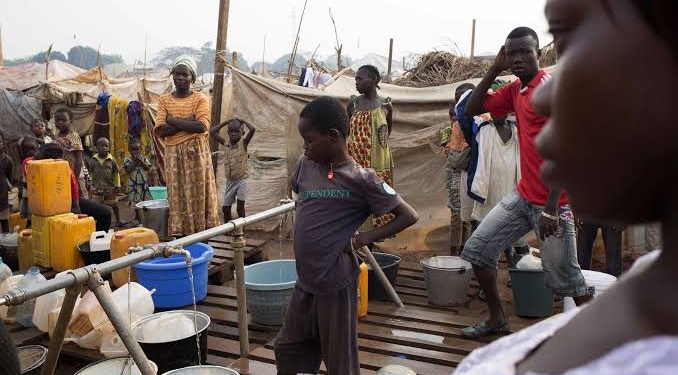The United Nations Human Rights Council has called upon states to implement the internationally agreed Sustainable Development Goals and targets, including Goal 6 on ensuring the availability and sustainable management of water and sanitation for all, in accordance with their obligations under international law.
The call was made during the forty-fifth session of the council after noting that gender inequalities still exist in the realization of the human rights to safe drinking water and sanitation, in particular as a result of women’s and girls’ specific needs concerning menstrual hygiene and menstrual health.
The Council called on states to “consider making the Sustainable Development Goals, including Goal 6, a priority at the highest level in order to ensure the progressive realization of the human rights to safe drinking water and sanitation for all in a non-discriminatory manner while eliminating inequalities in access.
“Including for persons in vulnerable situations and marginalized groups, on the grounds of race, colour, sex, language, religion, political or other opinion, national or social origin, property, birth or other status, as well as on any other grounds, including disability.
“To promote both women’s leadership and the full, effective, meaningful and equal participation of women in planning, decision-making and implementation on water and sanitation management.
“This is to ensure that a gender-based approach is adopted in relation to water and sanitation programmes and that measures are taken to reduce the time spent by women and girls in collecting household water, in order to address the negative impact of inadequate water and sanitation services on the access of girls to education.
The Council added, “this is to protect women and girls from being physically threatened or assaulted, including from sexual violence, while collecting household water and when accessing sanitation facilities outside of their home or practising open defecation, to protect women’s and girls’ equal access to water and sanitation, and to take positive measures to guarantee their availability and accessibility.
The UN Human Rights Council, therefore, called on States “to promote safe public spaces and to improve the security and safety of all women and girls through gender-responsive rural and urban planning and infrastructure when accessing sanitation facilities and water waste collection and treatment facilities outside their homes or when collecting household water.

